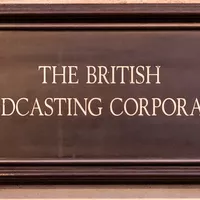Could vs Was able to - English In A Minute
できた||||||||
Könnte vs. War in der Lage - English In A Minute
Could vs Was able to - Inglés en un minuto
Could vs Was able to - English In A Minute
Could vs Was able to - Inglese in un minuto
Could vs Was able to - イングリッシュ・イン・ミニット
Could vs Was able to - Angielski w minutę
Could vs Was able to - Inglês Num Minuto
Could vs Was able to - English In A Minute
Could vs Was able to - Engelska på en minut
Could vs Was able to - English In A Minute
Có thể vs Đã có thể - Tiếng Anh trong một phút
Could vs Was able to - 英语一分钟
可以 vs 能夠 - 一分鐘英語
When do we use 'could' and 'was able to' to talk
Konuşmak için ne zaman 'could' ve 'was able to' kullanırız?
Khi nào chúng ta sử dụng 'could' và 'was could' để nói chuyện
about past abilities?
||能力
||Fähigkeiten
||skills
o minulých schopnostech?
geçmiş yetenekler hakkında?
If it's a positive sentence, ask yourself
||||self-reflection|question|
Pokud je to kladná věta, zeptejte se sami sebe
Wenn es ein positiver Satz ist, fragen Sie sich
ポジティブな文章であれば、自問してみよう。
Eğer olumlu bir cümleyse, kendinize sorun
if it's a general ability - which uses 'could',
||||skill or capability|that|verb|can
pokud je to obecná schopnost – která používá „mohl“,
一般的な能力であれば、'could'を使う、
eğer genel bir yetenek ise - ki bu durumda 'could' kullanılır,
or a specific achievement - which usually
|||достижение||
|||réalisation||
or a particular|a particular|particular|accomplishment|that typically|typically
|||成就||
|||Leistung||
||||lo cual|
nebo konkrétní úspěch - což obvykle
または特定の業績 - 通常は
veya belirli bir başarı - ki bu genellikle
uses 'was able to'.
verb|past tense auxiliary|could|verb infinitive
používá „byl schopen“.
'yapabildi' ifadesini kullanır.
'I could run fast when I was younger.'
|was able to|move quickly|quickly|at that time|first person|was in|earlier age
"Když jsem byl mladší, uměl jsem rychle běhat."
'Podía correr rápido cuando era más joven'.
'Я мог быстро бегать, когда был моложе'.
"Gençken hızlı koşabilirdim.
'I was able to win a medal.'
||||||獎牌
|past tense verb|was capable of|verb marker|achieve victory|a single|medal
||||||medalla
"Dokázal jsem vyhrát medaili."
Я смог завоевать медаль".
"Bir madalya kazanmayı başardım.
“我能够赢得一枚奖牌。”
But we do use 'could' for a specific event,
contrastive conjunction|we (the speaker)|verb|utilize|past possibility|to indicate|a specific|particular|specific situation
Ale používáme „mohl“ pro konkrétní událost,
しかし、特定の出来事に対しては『could』を使う、
但我们确实会用“could”来表示特定事件,
if we use verbs related to senses or thought processes.
||||||чувства и мысли|||
||||verwandte||Sinneswahr||Gedanken|Prozesse
conditional conjunction|we (the speaker and|utilize|sense or think|||Perceptual experiences|||mental activities
||||relacionados|||||
||||||感官|||過程
感覚や思考プロセスに関連する動詞を使う場合。
если мы используем глаголы, связанные с чувствами или мыслительными процессами.
duyular veya düşünce süreçleriyle ilgili fiiller kullanırsak.
如果我们使用与感觉或思维过程相关的动词。
'I could feel the wind in my face.'
"Cítil jsem vítr ve tváři."
Я чувствовал ветер в лицо".
"Rüzgarı yüzümde hissedebiliyordum.
'I could remember my coach's advice.'
||||教練的|建議
||||du coach|
||||trainer's|
||||コーチの|
"Pamatoval jsem si radu svého trenéra."
Ich konnte mich an die Ratschläge meines Trainers erinnern.
'Я могу вспомнить советы своего тренера'.
“我记得教练的建议。”
If the sentence is negative, it's much easier –
如果句子是否定的,那就简单多了——
we can use either.
|||entweder
|||どちらでも
můžeme použít buď.
ikisini de kullanabiliriz.
我们可以使用其中任意一种。
'I couldn't do much at school the next day.'
||||||||Tag
"Druhý den jsem toho ve škole moc dělat nemohl."
'No pude hacer mucho en la escuela al día siguiente'.
次の日、学校ではあまり何もできなかった』。
На следующий день я не мог много заниматься в школе".
"Ertesi gün okulda pek bir şey yapamadım.
“第二天我在学校没法做太多事情。”
'I wasn't able to concentrate at all!'
||||專心||
"Vůbec jsem se nedokázal soustředit!"
'Я совсем не мог сосредоточиться!'
"Hiç konsantre olamadım!
“我根本无法集中注意力!”
Negative or positive? Specific or general?
||正面|具體||一般
Negativní nebo pozitivní? Konkrétní nebo obecné?
Are there any senses or thought processes?
|||感官|||思考過程
||||||procesos mentales
Existují nějaké smysly nebo myšlenkové procesy?
Есть ли чувства или мыслительные процессы?
Herhangi bir duyu veya düşünce süreci var mı?
'What could you do when you were younger?'
"Co jsi mohl dělat, když jsi byl mladší?"
'Что вы умели делать, когда были моложе?'
"Gençken ne yapabiliyordun?
'What were you able to achieve?'
Mitä|||||
|||||erreichen
|||||達成
"Čeho jsi byl schopen dosáhnout?"
"Mitä sait aikaan?"
'Чего вы смогли достичь?'
"Ne elde edebildiniz?
'What could you see or hear while you were doing it?'
"Co jsi mohl vidět nebo slyšet, když jsi to dělal?"
Was konntest du sehen oder hören, während du es getan hast?
"Mitä näit tai kuulit tehdessäsi sitä?"
その間、何が見えたり聞こえたりしましたか?
Что вы могли видеть или слышать, когда делали это?
"Bunu yaparken ne gördünüz ya da duydunuz?

